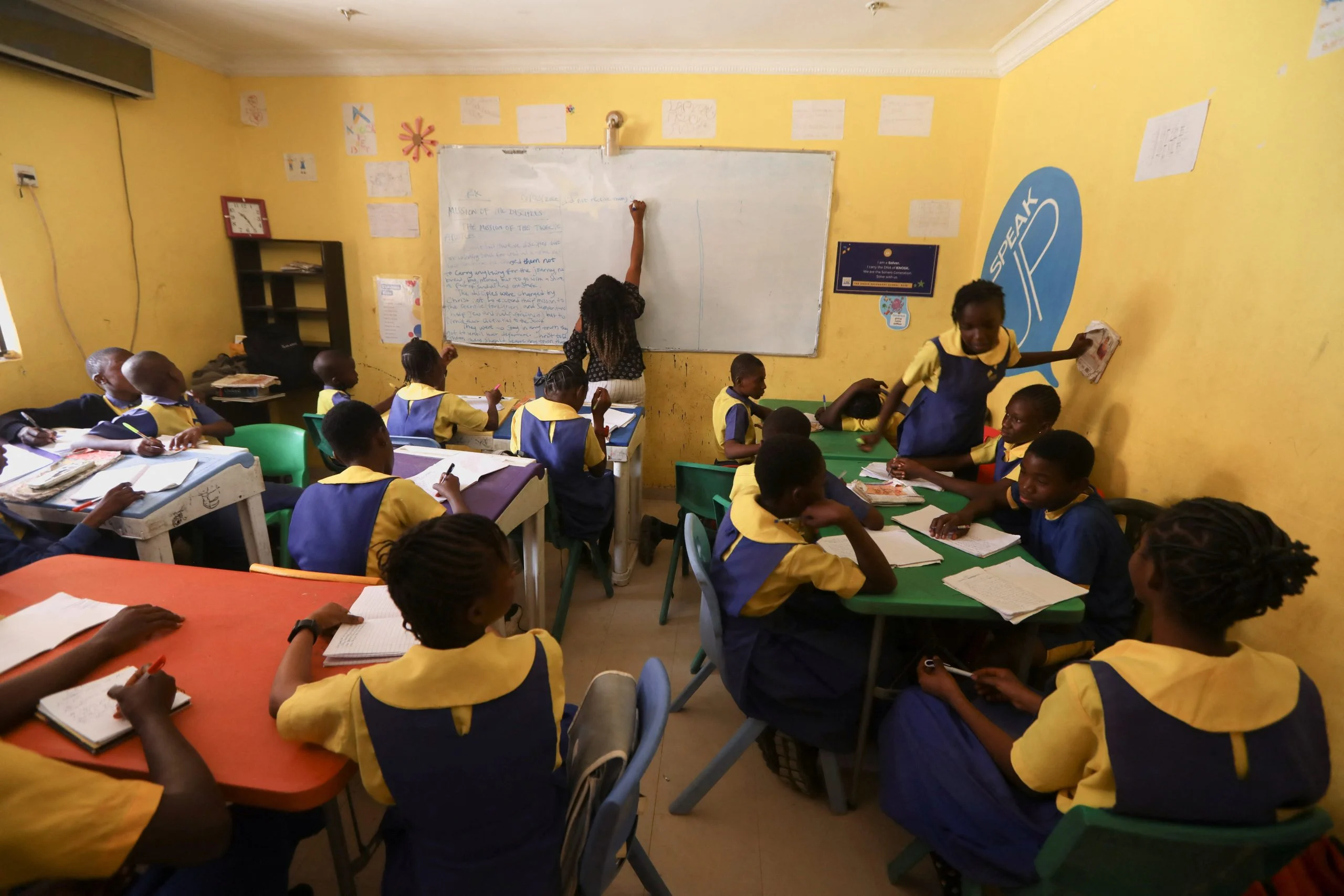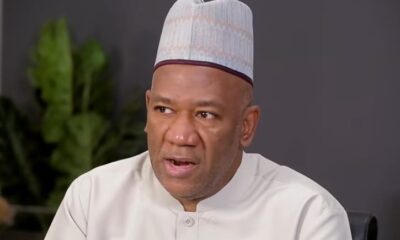News
Nigerian schoolteachers turn to higher-paying online tutoring

A growing community of Nigerian primary school teachers have left full-time classroom jobs to tutor students online, widening the personnel shortage in basic education.
“I earn more online than I ever did in a classroom,” Tomisin Ogunsusi, a Nigerian teacher who finally quit her full-time job in 2024, tells The Africa Report.
Others say online tutoring offers them flexibility away from traditional full-time classroom roles.
Nigeria’s population of over 230 million, with 42% under 15 and a median age of 18, requires a steady stream of teachers to keep classrooms running.
Former director of the Universal Basic Education Commission (UBEC) Hamid Bobboyi said in July 2024 that 30% of the teaching workforce has left since 2020 without being replaced, and an estimated 194,000 teachers are needed to fill the shortage.
I earn more online than I ever did in a classroom
At a meeting with private schools owners in Lagos organised by UBEC in collaboration with the Private Sector Advisory Group, Bobboyi said many of these teachers retired while others left for greener pastures.
Teachers gain tutees by marketing themselves via social media – often combining tutoring sessions with influencer-style education content.
The surge in edtech platforms contributed to this development as tutors found they could earn a month’s pay in a few hours, according to Yomi Fawehinmi, a human resources expert.
Tuteria, one of the most popular edtech organisations in Nigeria, said it registered more than 18,000 tutors since launching in 2015.
However, the edtech model doesn’t suit everyone, says Oluwatoyin Ajilore, an education researcher at Tufts University in Massachusetts.
“Most edtech platforms deliver pre-recorded lessons, but parents prefer to have someone on the other end for real interactions, thus encouraging tutors to build their own businesses,” Ajilore tells The Africa Report.
The migration wave among Nigerian families also ensures a steady stream of clients.
Private schools are also based on the budget of the parents because the most expensive ones offer a better standard and more qualified teachers
Online tutors remain in demand as some Nigerians in the diaspora want their children to learn their indigenous languages or prepare them for major exams, according to Fawehinmi.
Despite the higher pay, the experience is not all rosy.
Akindimeji Fadare, who still maintains his classroom job in addition to online tutoring, says his classes run until 3:30am on some days due to the time difference.
“I initially struggled, but I have found that schedules and using more digital tools keep the job flowing,” Fadare says.
Ogunsusi says her lessons must be adapted for each country where the student is based.
“The curriculum is not one size fits all like the traditional classroom where the children are all in the same age group and are expected to take the same lessons,” she says.
The allure of higher pay does not appeal to some, she adds. “There are so many teachers who would rather stay in the classroom.”
Higher costs for parents
Private education and tutors are most preferred by parents who do not trust the quality of the government’s free basic education.
“We see the photos and videos where the classrooms of public schools are in terrible shape without roofs or walls,” says Ibrahim Abdulkadir, a parent in Lagos.
Children have been abducted from schools – most recently the more than 300 students kidnapped from a school in Niger State – making parents wary of enrolling their children in facilities with lax security.
These attacks, usually in rural communities, resulted in the recent shutdown of 47 state-owned high schools, increasing the appetite for private education.
A 2022-2023 audit of the basic education sectorconducted by UBEC shows that 53% of schools are privately owned.
“Private schools are also based on the budget of the parents because the most expensive ones offer a better standard and more qualified teachers,” says Abdulkadir.
Ajilore says some private schools now allow teachers to do private lessons on-site to encourage them to stay within the system.
But as experienced teachers exit classrooms, children in rural communities with limited internet bear the brunt.
(The Africa Report)
-

 Politics1 hour ago
Politics1 hour agoWhoever seeks to defeat Tinubu must show red eyes… no court victory – Datti Baba-Ahmed
-

 Business23 hours ago
Business23 hours agoFG Pauses On Tax Laws Guidelines, Cites Uncertainty
-

 Business17 hours ago
Business17 hours agoBanks to charge 7.5 VAT on mobile transfer, PoS transaction fees
-

 Politics1 hour ago
Politics1 hour agoAtiku breaks silence as son dumps PDP, declares support for Tinubu’s re-election
-

 Metro23 hours ago
Metro23 hours agoAlleged Infidelity: Wife kills husband, girlfriend, injures another in Delta
-

 Politics2 hours ago
Politics2 hours agoAtiku’s Son Endorses Tinubu For 2027
-

 News2 hours ago
News2 hours agoMost Kidnapping, Violence In Ekpoma Carried Out By Locals – Okpebholo
-

 News22 hours ago
News22 hours ago₦246bn allocation for NEDC not for salaries alone – Budget office


















